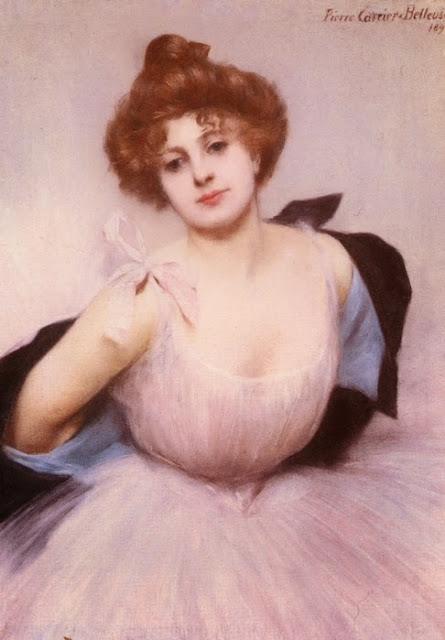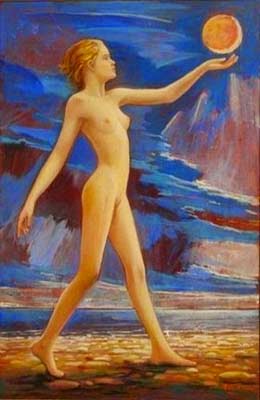Pasquale PICAZIO (1947)
Painting by Pasquale Picazio in the Future of Visual Civilization
Pasquale Picazio, upon arriving at his climax as an artist, prepares for the eminent arrival of innovations of the “Post-Novecento,” or after the 20th century. Therefore, we are led to see (Visto) and think of the future of figures in art. In this case, the word “Visto” or see, should be interpreted in the immediate and universally: see the image; enjoy the image as you are looking at it. When enjoying, absorb the explicit communications and the hidden transmissions. In Picazio’s case, being a painter of Body, you could even use the term “sotto pelle” or under skin, to solicit a vision that must go deeper, and at the same time rise into the light, in the summit of emotion.
The “Nudo-Donna” or Nude-Women of Picazio is understood immediately, and seen, in her visual sense literally but is almost a reconsideration of desire-memory, being absorbed in a non-visual way and transmitted intimately to the spectator of the painting. We are experiencing Pasquale Picazio art in a rare, modern way; the body language of absolute purity, having arrived to us from the Greeks. Returning back to the painter, we can analyze three points about the painter as follows:
1. Pasquale Picazio paints with a vast applicative knowledge of his work as an artist. In work, we mean the possibility of using each instrument and useful material in realizing the inspired moment of the painting. It would remain in limbo of artificial beauty, and not art, if the technical method realized was separated, worse isolated, from the poetic thread. Pasquale Picazio, as many contemporaries who – sometimes knowing their real limits – exchanging even the ultra modern improvisation of their painting, tend to fuse technique with their emotional objective. Only a minority of contemporary artists are able to do this: permitting a perfected technique and together causing an instinct of art, these qualities distinguishing an artist, and in Picazio becomes his own Signature.
2. revisit of Picazio in his first works, brought forward to today and to his possession of global quality, documents the use of materials and “methods” of painting inserted in the story of the art affair that has made superb the century that we have left. Overlapping substances, tactile divisions on the painting, absorption of our most significant revolutions which has been futurism, a mixing of lessons learned from previous masters of his generation, this and more make of Picazio an artist well aware of what is asked of painters today: both concrete and unreal image, overcoming this breakthrough of photography and separating them. In a sub sequential phase the artist has polarized the attention and realization of the painting on the inspired model to the feminism characteristics seen by male eyes. The risk was to stop at the image of a woman in a painting without objective, even if giving dense visual enjoyment. Picazio surpasses this risk. One of his paintings (“Contatto” or “Contact”) showing a human couple stylized, and clearly narrated, in the tangle of his painting. Picazio was able to happily put in place the fusion of modern art: from one part the geometric figures and the other classic figures, resolving the conflict between formal and informal (This is understood as other “form” of figuration). The autonomy of painter Picazio is to obtain this fusion without remixing the two situations, but placing them in the same painting with full separation. With wisdom of art, he causes the visual burst of unity. Two forms that, to the magic eye and intimate look in an instant process, causing a sensation of realness. The contemporary look, indeed, is not able to exclude the perfection of the human form, acceding to our “Corpo-Esistenza” or “Existence of Body,” but believes necessary to insert into the visual landscape explosions of color and lines, which are now visual heritage of the new civilization of images, in which we live. In this combination, realized from the first line of technique, is actually a valid sense of transparent time in the painting, as with Picazio. We would elevate him to being a reference of art. Like the naturalistic Leonardesque background on the perfection of the subject central to the work, Picazio raises the visual mental bottom of today. It is his reality.
3. The situation of this artist coincides, because art is also a spontaneous insertion in history, with a diffusion of phenomena, which did not happen, and is not a movement. By chance, or by intuition, around 1973 the painter that wanted, on purpose, to make the Body a protagonist of sentiment and even of ideologies of existence, being named as Body-Art. Words remain words, when missing the body of work resolvable in poem. Idea of going beyon
Roma 04 April 2000, Giuseppe Selvag


















































































.JPG)











.JPG)








.JPG)








































